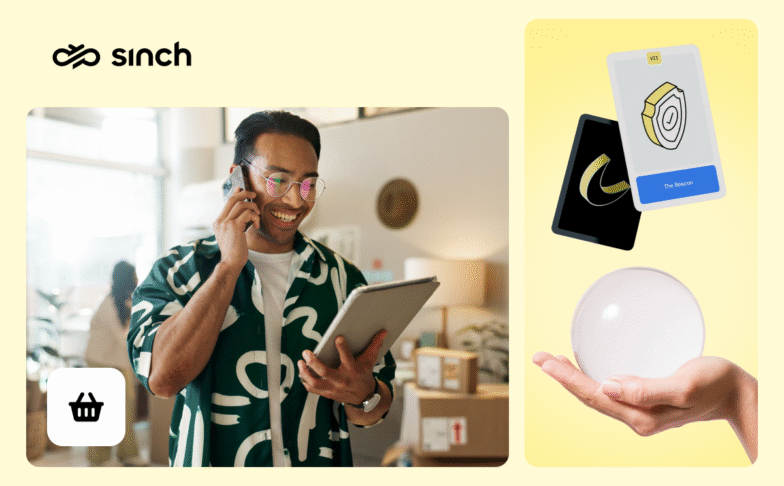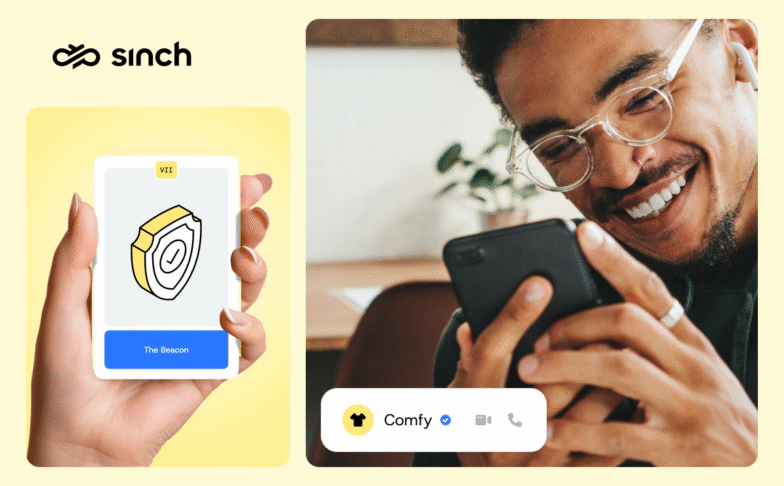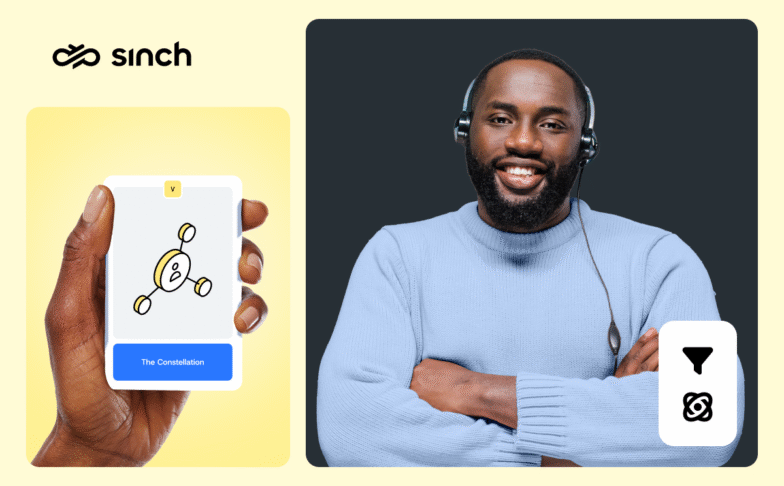Insights
22 smart ways to use WhatsApp Business API: Use cases + examples
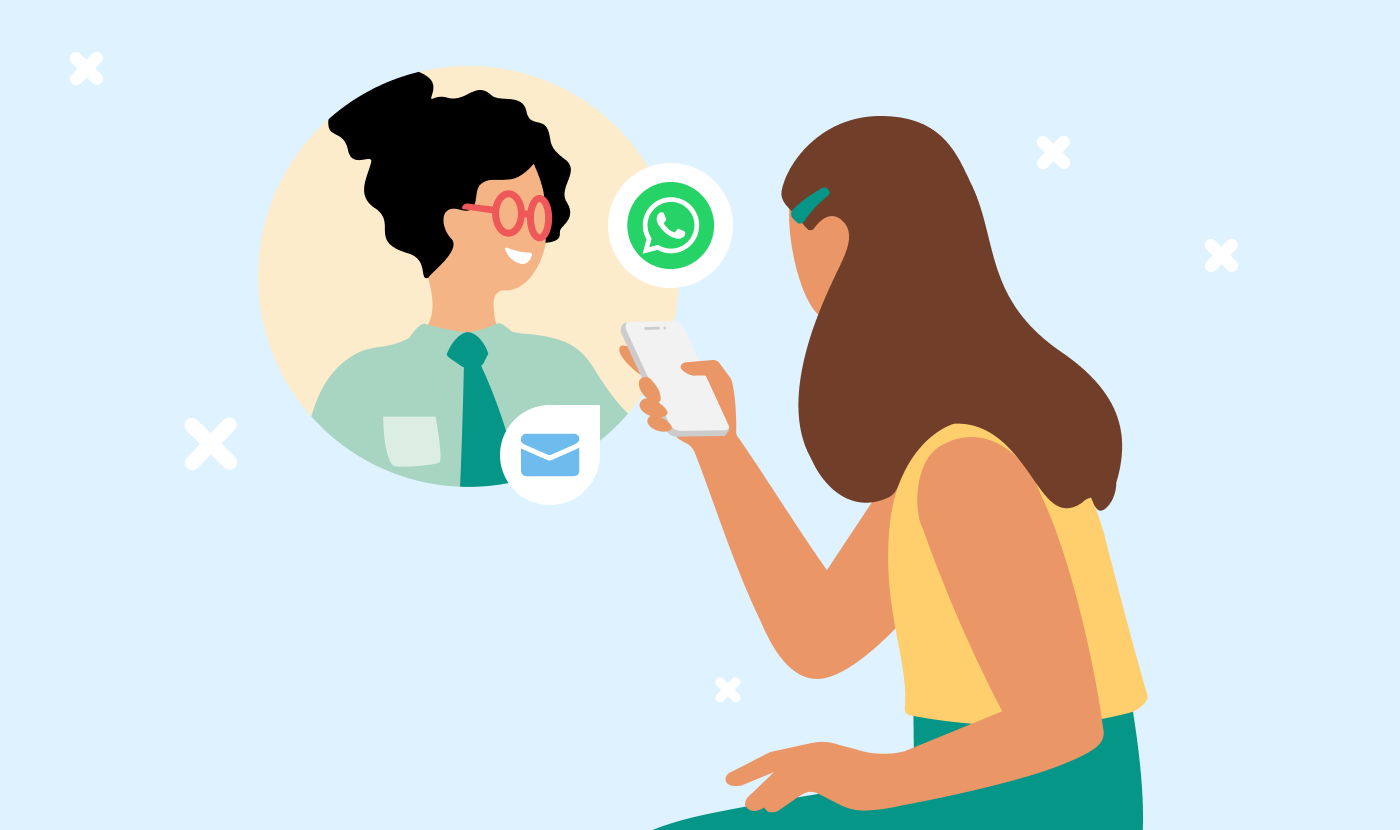
If WhatsApp isn’t part of your customer communication strategy, you’re definitely missing out! The world’s most popular messaging app is a powerful communication channel throughout the entire customer journey. Not quite sure how to get the most out of it? No problem! In this guide, we’ve put together 22 WhatsApp Business API use cases and real-life examples to get you started.
What if we were to tell you there’s a communication channel where users love to interact with businesses, and you can reach billions of consumers around the world plus build tremendous customer engagement and loyalty? You’d probably say: “Sign me up for it right now!” Well, that channel does exist, and it’s called WhatsApp.
WhatsApp has become the go-to messaging platform in countries like India, Brazil, Indonesia, Mexico, and many parts of Europe. And even in the U.S., WhatsApp is having a moment: The United States is currently the fastest growing WhatsApp market in the world. That’s exactly why more businesses are turning to WhatsApp Business API – WhatsApp’s most versatile business solution – to be where their customers are.
As a mobile messaging channel, WhatsApp is also fast, personal, and secure. Plus, it helps you scale meaningful conversations across the entire customer journey. If you’re new to WhatsApp Business messaging and not quite sure where to start, we got you covered. In this guide, we’ll explore several WhatsApp Business API use cases, from top-of-funnel marketing to long-term loyalty. Let’s dive in!
Examples for WhatsApp Business API marketing use cases
As an internet-based mobile messaging channel, WhatsApp lets you send rich messages (think: images, videos, carousels, product catalogs, and more) that deliver impressive engagement metrics for marketing campaigns.
Average open rate for WhatsApp messages
Click-through rate for WhatsApp business messages
That’s why WhatsApp is a top choice when it comes to marketing your business and products. Let’s look at some popular use cases.
Always make sure users have opted in to receive WhatsApp messages from you before contacting them.
Promote new products or services
Use WhatsApp marketing to launch new offerings or send promotional messages with a personal touch. Share updates with your audience through image-rich messages, videos, or even quick how-to explainers.
Drop exclusive offers
Build excitement and reward your most engaged customers with special deals sent straight to their phone. Whether it’s early access or a time-limited promo, these offers feel more exclusive when they arrive in a private conversation.
Send abandoned cart reminders
Give customers a gentle nudge to complete their purchase. Use WhatsApp to remind them of what’s still waiting in their cart – and throw in a small incentive to sweeten the deal.
Invite users to events or webinars
Send personalized invitations for events, product demos, or webinars – and allow recipients to RSVP right in the app. You can even follow up with a reminder before the event starts.
Create fun polls and quizzes
Want to boost engagement and gather insights? Use interactive formats like polls, quizzes, or preference tests to learn more about your audience while keeping things light and fun.
WhatsApp has paused the delivery of all marketing template messages to users with a U.S. phone number in April. This pause is temporary and aims to create a better experience for users in the U.S. Businesses can still send marketing messages to U.S. recipients through a free-form template in an open service conversation.
Also keep in mind that WhatsApp has started to introduce per-user limits for marketing message templates globally.
“Starting March 2025, we may limit the number of marketing template messages a person receives from any business in a given period of time, starting with delivering fewer marketing messages to those users who are less likely to engage with them. In most WhatsApp markets, this is determined based on a number of factors, including a dynamic view of an individual’s recent marketing message read rate and how many messages they currently have in their inbox from friends, family and businesses.”
These limits come with the launch of the new Marketing Message Lite API (MM Lite API) that has been available for self-registration in Beta since April 1, 2025.
Along with limits, messages that are sent through the MM Lite API will automatically be optimized to reach better delivery rates. The MM Lite API is currently not available in for businesses in the European Economic Area, the UK, Japan, and South Korea. This means: These markets are not affected by per-user limits yet, but also don’t benefit from optimizations on their campaigns.
Examples for WhatsApp Business API use cases in customer service
WhatsApp isn’t only speedy, popular, and great for safe communication – the mobile aspect of the messaging app also makes it easy to have conversations “on the go.” This is an ideal scenario for flexible support and better customer satisfaction. Here are some ideas for using WhatsApp in customer service.
Use automation to guide users through web forms and processes quicker
WhatsApp offers different automation features that reduce the response time and improve the user experience. WhatsApp Flows, for example, lets you build guided experiences that walk customers through processes like submitting claims, booking appointments, or registering for services – all without leaving the app.
Quick replies is another feature you can use to speed up customer support. You simply pre-write responses to frequently asked questions and when these pop up in a chat, you can send the saved responses with one click.
Handle customer queries through WhatsApp
An ordered item arrived with damages, the sneakers came a size bigger than ordered, the sweater isn’t the right size – especially in e-commerce these common complaints can be handled smoothly through WhatsApp.
Instead of explaining the issue in lengthy text threads, customers can simply send an image or video to showcase the problem and get it solved much quicker. That’s not only a better user experience, but it’ll also save service teams a lot of time.
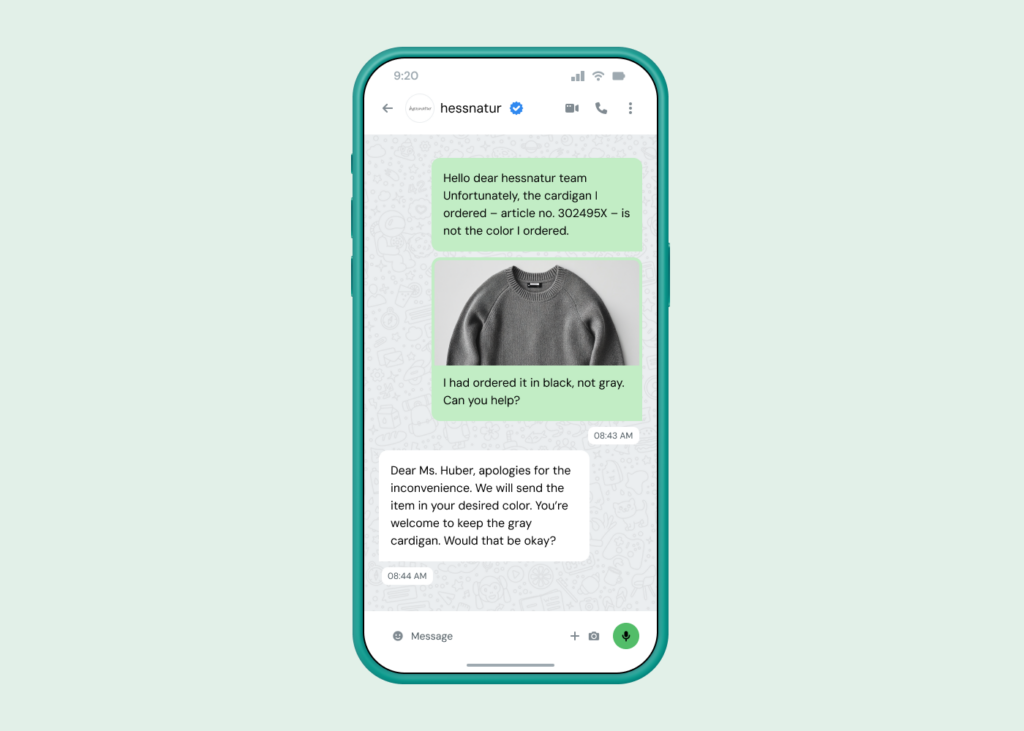
Remind customers of upcoming appointments
Cut down on no-shows by sending friendly, timely appointment reminders. You can even include links to reschedule or confirm directly in the message.
Notify customers about relevant updates in real time
Send messages on WhatsApp to confirm orders, notify customers about shipments, send delivery status updates, or issue payment reminders – all from a single channel your customers trust.
Send OTPs through WhatsApp
Use WhatsApp for secure, real-time verification with one-time passcodes. WhatsApp’s default end-to-end encryption actually makes it one of the safest channels for sending OTPs. And if for some reason the WhatsApp messages don’t go through, they’ll default to text messages, ensuring that users will get their authentication messages.
Only authentication templates can be used to send OTPs for identity verification. Marketing and utility templates are not allowed for this purpose.
Answer FAQs with WhatsApp chatbots
Handle common customer queries with WhatsApp bots that offer instant responses – and seamlessly escalate to a human agent. WhatsApp chatbots can be rule-based or AI-powered, depending on your needs.
Send important alerts
Keep customers informed with real-time alerts like store closures, travel updates, service disruptions, or changes to scheduled events.
Handle sales-assisted conversations through personal chats
Sometimes a customer is close to converting but has a few questions before they click “buy.” With WhatsApp, you can route high-intent leads to a sales rep for a real-time, in-app conversation. This works especially well for high-value items or services that require more personalized attention. You can even use automation to pre-qualify the lead and connect them faster to the right representative.
Clearly, the friendly nature of WhatsApp chats makes it easy to establish a strong personal bond with your customers. This sets up a great foundation to nurture these relationships and build loyalty.
Examples for WhatsApp Business API use cases to build loyalty
When you chat with customers on WhatsApp, you interact with them in the same environment as their friends and family. This creates a closer tie between you and your audience – a great starting point for building long-lasting customer relationships.
Here are some ideas for using WhatsApp to grow customer loyalty.
Ask for feedback
After a purchase or support interaction, use WhatsApp to request customer feedback. A quick survey in chat format feels more personal – and gets higher response rates.
Personalize re-targeting messages
Delight your customers with birthday wishes, loyalty rewards, or tailored product suggestions based on past purchases. Integrate WhatsApp with your CRM to automate these personalized experiences.
Promote upsells and cross-sells
Use insights on what products and services your customers already love to send them interesting new offers or special upsells. Since all your WhatsApp chats with a customer happen in the same chat window, it feels very natural to pick up an existing conversation.
If you want to dive deeper into WhatsApp business messaging, check out our step-by-step guide.
Now that we’ve gotten a few ideas how to use WhatsApp along the customer journey, let’s explore how different industries are getting real results with WhatsApp.
WhatsApp API use cases from financial services to the travel industry
It’s easy to see how to use WhatsApp throughout the entire customer journey, but is it the right customer communication channel for your company? To put it plainly: If your customers are using WhatsApp, you should be using WhatsApp – regardless of the industry you’re in.
We’ve put together examples from various industries for what this could look like.
Financial services
Financial services companies are embracing WhatsApp for conversational banking – think real-time account info, transaction notifications, and fraud alerts.

The encrypted nature of WhatsApp also makes it ideal for secure two-factor authentication (TFA), giving customers quick access without compromising security.
Retail and e-commerce
For large retail enterprises or e-commerce platforms, WhatsApp can serve as a platform for personalized shopping assistance. Leveraging WhatsApp’s two-way conversational features, retailers can enhance the customer experience by offering product recommendations, rewards schemes, or more.
Want a real-life example of a retailer that leverages WhatsApp API? Look no further than Orion Mall in Bangalore. They have a WhatsApp chatbot named Orion Genie that automates answers to FAQs around the clock and, most impressively, drives more visitors to the mall. In fact, they expect the tool to help them double the number of visitors during the busy holiday season!

Orion’s chatbot now has over 3,500 conversations with customers every month – and the mall has already seen an increase in foot traffic, in part thanks to the fast, reliable information provided by Orion Genie.
Travel and hospitality
One of the most common ways travel and hospitality enterprises can use WhatsApp Business API is to provide customers with details about intended destinations and real-time updates on travel itineraries, including flight or hotel booking confirmations. This can keep them well-informed during their busy and occasionally stressful travel experiences.
For airlines, WhatsApp offers a convenient channel to share travel logistics, like seat selection and boarding passes. And in case of reservation issues, WhatsApp can be ideal for delivering timely, conversational assistance when your customers need it most.
Pro tip: Considering that travelers might not be able to access their SMS services while traveling abroad, WhatsApp could be a great alternative to keep customers informed.
Telecommunications
Customers expect more from their mobile carriers today, and many operators see a high churn rate after issuing the first bill. Conversational channels like WhatsApp can help break that pattern. Sending personalized messages and videos through channels like WhatsApp can help clarify charges and reduce churn by helping you establish a personal connection with your customers.
Medical services
Medical services applications on WhatsApp can be somewhat more restricted because there are more approval processes required. However, once you’ve secured the ability to use the channel, it offers definite advantages for enhanced patient engagement.
With WhatsApp API, healthcare providers can send updates about appointments, feedback forms, public health updates, and even telecommunication services, resulting in better health outcomes.
A great example of this use case is Salud Digna, a non-profit healthcare provider in Mexico. Salud Digna used WhatsApp Business API to enable secure and easy access to lab testing appointments and results during the COVID-19 pandemic.
Their WhatsApp virtual assistant allowed them to quickly address common questions that previously would’ve required an in-person visit, helping to ensure great service for clients and safer conditions for employees working in direct contact with patients at open clinics.
The results are astounding: 5.1 million COVID-19 test appointment confirmations sent, two million test results securely and automatically delivered, and 89% of interactions no longer requiring a live agent.
Automotive
Car dealerships and service garages often deal with the same type of customer questions: When can I pick up my car? When can I schedule my next service visit? Do you have car detailing services? With WhatsApp, all of these questions can easily be answered with a chatbot.
That’s exactly the approach the BMW Munich service branch took. They set up the “Follow Now” chatbot service on WhatsApp where customers could not only get immediate answers to their questions, but also real-time updates on their vehicle status.

Another interesting use case is to offer WhatsApp as a support channel when someone is in the market for a new vehicle. A lot of these car purchases are now actually happening online.
But with the high investment, users typically have a lot of questions before committing. Offering customers to send their questions via WhatsApp is a great way to support them and offer personalized help. With the asynchronous communication style on WhatsApp, there’s also no rush to get back to the other person right away. So, customers don’t feel pressured and are more likely to hit “buy.”
Other use cases for core business verticals
WhatsApp Business messaging has tons of other use cases, some of which you won’t find on other messaging channels. In fact, in August 2024, Meta made a big announcement that businesses in India, APAC, and Latin America can use the WhatsApp Business Platform for marketing, promotional, and utility use cases in some new verticals like:
- Alcohol
- Over-the-counter medication (though prescription drugs and medical devices are still prohibited)
- Real money gambling
If you want the full list of allowed countries for each vertical or more details, check out the WhatsApp Business Messaging Policy.
Ready to get started with WhatsApp API?
If you’re looking to scale personalized engagement, reduce friction, and deliver optimized customer support, WhatsApp Business API is a powerful tool that checks all the boxes.
Keep in mind that WhatsApp offers different business solutions. The use cases we explored here are only possible with the API because the WhatsApp Business app won’t give you access to all the necessary features. The easiest way to get access to the API is through a verified WhatsApp Business Solution Provider (BSP) like Sinch.
Working with a BSP like Sinch gives you access to premium support, tools, and even exclusive Meta programs. Our WhatsApp platform easily lets you integrate chatbots, CRM tools, and even other messaging channels through our robust APIs – all managed from our centralized Dashboard.
So, scaling and streamlining your WhatsApp conversations throughout the entire customer journey becomes a breeze. Plus, our solution is 100% compliant with even the strictest data regulations like the GDPR to keep your and your customers’ information safe.

